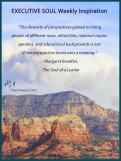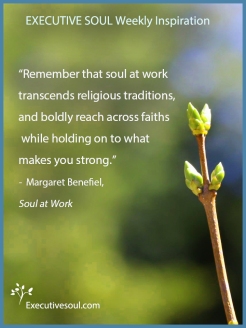Outside my window, the storm rages. Hurricane Sandy, possibly the worst storm ever to hit the east coast of the U. S., forces us to hunker down, batten down the hatches, and wait her out. Animals restless, the dog pleads with us to give her a real walk.
All around me, the political storm rages, much like Hurricane Sandy. With eight days to go before the U.S. election, attacks sharpen, hostilities increase. Political hostilities, possibly the worst ever, tempt me to hunker down, batten down the hatches, and wait it out. I’m beginning to understand those Facebook friends who say they don’t want to see any more political discussion.
Yet part of me knows there is another way.
I watch the trees outside my window. They bend in the storm. Their branches blow wildly in the wind. Yet they remain strong. Their deep roots and flexible limbs allow them to weather the storm while standing in the midst of it. While doing so, the trees provide shelter. Their root systems prevent the ground from eroding.
In Healing the Heart of Democracy, Parker Palmer brilliantly delineates the political storm in which we find ourselves. He demonstrates how consumerism, scapegoating, and the mass media which fuels their fires erode the soil of democracy.
But Palmer doesn’t stop there. He shows us how we can be like the trees, deeply rooted and grounded, flexible, standing strong in the midst of the storm. He shows us how we can provide shelter, how, by developing strong roots, we can be grounded leaders who prevent the soil of our society from eroding. He explores the outward and visible infrastructures of democracy and proposes ways to make better use of them. For example, school teachers can be grounded leaders by helping students connect history lessons to their own lives. History lessons about Nazi Germany parallel discrimination against minorities today, close to home; any culture carries within it the seeds of oppression and violence.
Furthermore, in school, students can practice democracy as well as learn about it. Or students can engage in service learning opportunities in their communities, integrating their classroom work with the world around them.
Palmer also explores how congregations and community groups can practice deep hospitality, welcoming the stranger, engaging more fully with those who are different. He points out how often relationships in such groups become superficial and how learning to risk vulnerability with one another enriches the soil of community.
Grounded leaders in schools, congregations, community groups, and (I would add) businesses can build the relationships and ways of being that form the foundation of a democracy.
I ask myself, “In what ways am I like the deeply rooted tree in the storm, exhibiting grounded leadership, providing shelter and preventing erosion in the political storm? In what ways can I learn from the tree, incorporating more of Palmer’s practices into my leadership?”
May we all resist the urge to hide from the important tasks of shaping the world, instead remaining fully engaged and deeply rooted as political storms swirl around us.
















